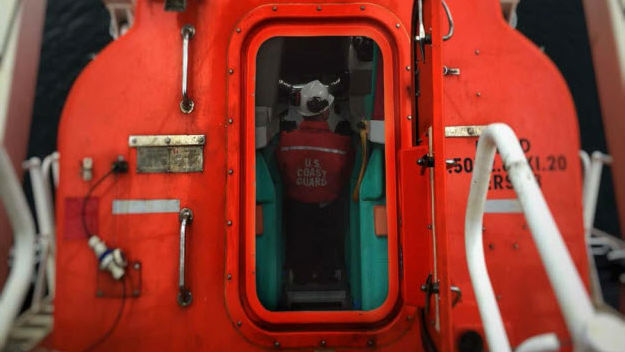U.S. Detention Rate Dropped in 2016

The U.S. Coast Guard’s Port State Control 2016 Annual Report has been released, highlighting a decrease in detentions from 202 to 103, the flag state’s lowest in five years.
“Our three-year rolling average detention ratio that was on the rise over the last two years has made a slight drop from 1.67 percent to 1.63 percent,” said Rear Admiral Paul F. Thomas, Assistant Commandant for Prevention Policy at the U.S. Coast Guard. “Though the drop in detentions is encouraging overall and may be a sign that owners and operators are putting greater emphasis on ship maintenance, we are seeing a rise in the percentage of detentions related to fire fighting and fire protection systems for the third straight year.
“As in 2015, there were a high number of detentions issued due to Port State Control Officers identifying quick closing fuel shutoff valves on fuel oil tanks blocked in the open position. Additionally, there were detentions issued for inoperable main fire pumps and instances where manual valves on hyper-mist systems located in unattended machinery spaces were discovered in the closed position, rendering the system inoperative.”
.jpg)
In 2016, 9,859 vessels from 83 different flag administrations, made 81,877 port calls to the U.S. The Coast Guard conducted 9,390 SOLAS safety exams and 8,818 ISPS exams on these vessels.
.jpg)
MARPOL Annex I deficiencies have been on the decline over the past several years. “I hope that vessel owners and operators remain committed to meeting environmental compliance standards. However, despite the numerous detentions, civil penalties, and even criminal prosecution actions in the most egregious cases, we continue to find instances where ships crews flagrantly disregard MARPOL Annex I requirements,” said Thomas.
“When an oily water separator is discovered to be intentionally bypassed or when Port State Control Officers are presented with a false record book or given a false statement during a PSC examination, the U.S. will continue to enforce our laws and treaty obligations, as well as pursue available domestic enforcement options, whether civil or criminal.”
The Coast Guard is introducing the QUALSHIP 21 E-Zero Program from July 1, 2017. E-Zero indicates a vessel has zero environmental deficiencies or violations and is a new addition to the existing QUALSHIP 21 program, which has been in place for over 15 years worldwide.
The E-Zero designation will be awarded to QUALSHIP 21 ships that have consistently adhered to environmental compliance, while also demonstrating an immense commitment to environmental stewardship, above and beyond the QUALSHIP 21 criteria. All existing QUALSHIP 21 ships due for renewal between July 1 and December 1, 2017 will be automatically screened for eligibility.
The report is available here.
